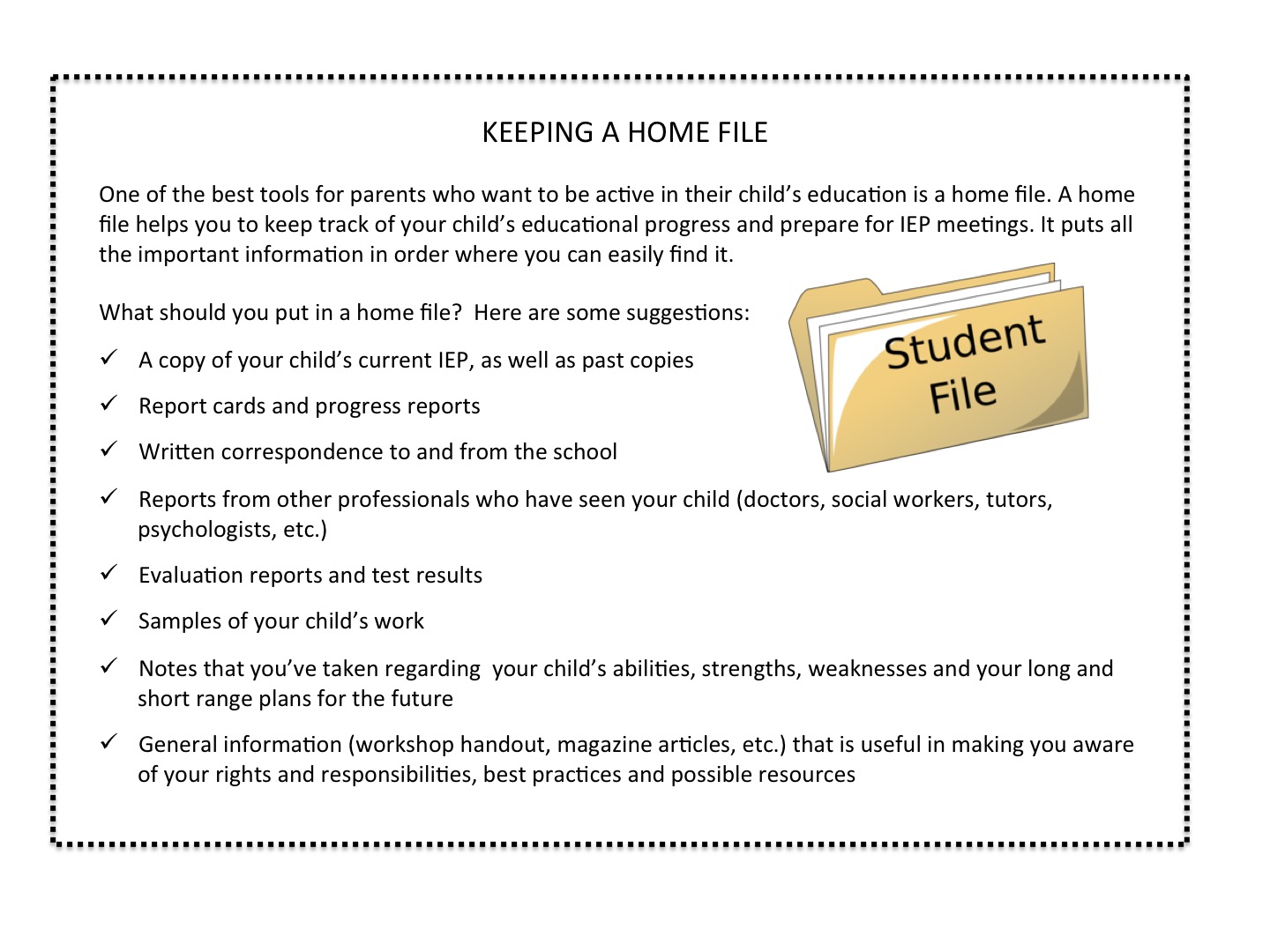You can ask to see your child’s educational records at any time.
School records provide an important source of information for principals, teachers and parents. Your child’s school record file may contain such things as test scores, health records, behavior reports, evaluation results, IEPs, grades received, etc. You can ask the school to provide you with a list of the types and locations of the educational records for your child.
You can get copies of these records.
You have the right to look at all of your child’s school records and to have copies made for you. Ask the school to help you. They must allow you to see the records within a reasonable time, but not more than 45 days after your request. If you want to review the records for an IEP meeting or a due process hearing, the school must honor your request to see the records BEFORE the meeting or hearing is held. Sometimes parents are asked to pay a small charge for copying the records, but if you are unable to pay for the copies, the school must provide them free of charge.
You can ask that certain information be taken out of your child’s record.
Ask for an explanation of anything that appears in your child’s records that you don’t understand. You may also ask the school to correct or remove information that you think is inaccurate, misleading or a violation of your child’s privacy. If the school disagrees with your request, you have the following options:
- you may write an explanation of why you feel the information is inaccurate, misleading or a violation of privacy and have it kept in the records ;
- you can request a meeting with the school to try to resolve your differences; or
- you can request a Chapter 34 hearing where the complex area superintendent or someone action on his/her behalf hears both sides of the disagreement and gives you a written decision within five days.
Your child’s records are kept private.
Your child’s educational records are confidential. That means that only a limited number of people should have access to that information — usually your child’s teachers, related services providers, the principal and key people from the district and state special education offices. A list is kept of those persons who are allowed to review those records. Another list attached to your child’s file documents who (except for authorized persons) has looked at your child’s records , the date, and the purpose. You may ask that copies of these lists be given to you. Your consent is required before anyone who is not authorized may review the records. You may want to give your consent for a friend or advocate to review your child’s file, if they are helping you to make decisions about his/her education.
At 18, your child can ask to see his or her own records.
When your child turns 18, your right to review the school records is transferred to him or her. An exception is made for students who have a court-appointed guardian or educational representative, which in many cases is the parent. (See PLANNING FOR TRANSITION).
When records are no longer needed to provide services to your child,
they may be destroyed.
they may be destroyed.
Basic information about your child’s attendance, grades and graduation status is stored by the school for many years after he or she graduates. Confidential information (for example, IEPs or evaluation results) may be destroyed three years after a student leaves school. The school district office must notify you or your child (at age 18 and older) that they plan to destroy his or her records. As your child is preparing to leave school, you may want to look at the records one last time and decide whether you want copies for your own files. Certain records may be needed to access adult services for your child.





